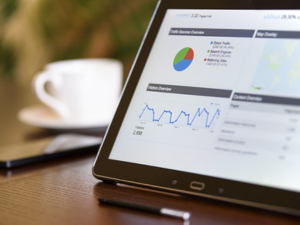 Companies today can tap into a wealth of data to guide them in making sound choices. That's why big data and analytics offer great advantages. They help you understand customers, markets, and operations.
Companies today can tap into a wealth of data to guide them in making sound choices. That's why big data and analytics offer great advantages. They help you understand customers, markets, and operations.
Let's explore the benefits you can gain from using big data and analytics.
Why Big Data and Analytics Matter for Your Business
Integrating big data and analytics can revolutionize how you run your company. These tools help you spot patterns and tendencies as they happen. They keep you a step ahead of your rivals.
When you examine data from various sources, you discover new and interesting information. These help you improve your processes and make better business choices. As a result, your profits and customer satisfaction may increase.
A restaurant owner, for example, can use analytics to sift through customer data. Sources can include social media reviews and online orders. The owner can determine which dishes are favorites and develop focused marketing efforts using these insights. The restaurant owner can even adjust the menu to highlight popular dishes to entice more customers.
Long-Term Benefits of Big Data and Analytics
You can gain many long-term benefits by using big data and analytics to make decisions. Some benefits include improving daily operations and making better predictions about market changes.
Adjusting your plans using data insights can make you more prepared for evolving markets and customer demands.
Getting Started With Big Data and Analytics
To unlock the potential of big data and analytics, you'll need to follow a few key steps:
- Collect Data. Begin by collecting information from various sources. As mentioned, these can include sales logs, customer surveys, and insights from social media. As you collect more information, you get better insights.
- Choose the Right Tools. Select the appropriate analytics tools for your company. Many choices are accessible to accommodate varying requirements and financial plans. These range from simple browser extensions to complete websites and software.
- Analyze and Interpret. Analyze your data using the chosen tools and interpret the results to uncover actionable insights. This process requires teamwork among your staff. Alternatively, you may work with outside experts skilled in data analysis.
- Make Changes. Use your insights to make significant changes to your business. Monitor the results and adjust your strategies as needed to maximize the benefits.
Embracing Data-Driven Decision-Making
The power of big data comes from transforming unprocessed information into usable knowledge. This knowledge can help your business thrive.
Using these tools in your decision-making allows for smarter choices, and smart choices lead to business success. Embrace the power of data-driven decision-making and unlock your company's full potential.





